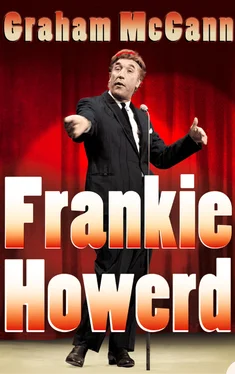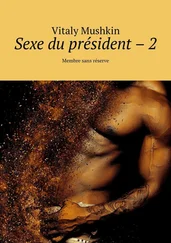It was what Howard did best: appearing to fail dismally at doing his best.
Over the course of the next half-century, he would use no fewer than eight of these âdeafâ pianists, 40 but the nature of the routine never changed. The attempt to produce âa bit of cultureâ produced nothing better than a bit of chaos, and more or less everyone in every British audience, from the nervous young soldiers of the early 1940s to the not-so-nervous young university graduates of the early 1990s, could find something to identify with, and laugh at, in that.
Before Howard could expand and develop his promising act any further, however, he was uprooted once again. Early in 1942, he was posted to a new Army Experimental Station at Penclawdd â a small fishing village on the Gower peninsula near Swansea in South Wales â and assigned an uninspiring but time-consuming office job in Requisitions.
Penclawdd was hardly the most congenial of locations for an aspiring entertainer. The village itself consisted of a tiny, quiet and close-knit community of cockle-gatherers, while, on its outskirts, the Experimental Station amounted to nothing more than a cluster of Nissen huts. There was a small local amateur dramatic society of sorts (which a grateful Howard joined âto keep my hand in, as it wereâ 41 ), but precious little else to stir a performerâs spirits.
Fearing that his ambitions would soon start to atrophy in such sleepily prosaic surroundings, he persuaded his Commanding Officer to allow him to apply to join the cast of Stars in Battledress â the big new Army Welfare concert party (a sort of entertainment âflying squadâ) that had been formed to tour all of the major fighting zones along the Allied Front. 42 He expected, bearing in mind all of the recent success he had enjoyed in front of audiences at Southend and Shoeburyness, that his act was now sound enough to assure him of a swift and easy admission. He was in, however, for a shock.
Auditions for Stars in Battledress were usually held in the nearest available cookhouse in front of an interviewing officer (and, invariably, it was only one) who had some kind of experience of show business. When, one dark and rainy morning, Frankie Howard arrived for his, he found himself at one end of a vast hall (still reeking of yesterdayâs soggy vegetables and watery gravy), and, far away at the other end, a stem-faced officer who had worked before the war as a part-time conjuror. Instantly, the old RADA feeling returned.
He suddenly realised just how helpless he was without a proper audience with which to interact. Alone in front of this single distant figure, in a room where every âoohâ, âaahâ, and âerâ was left to die a lingering death of lonely echoes, Howard was beaten before he started. The left knee trembled, the stammer took over, the mouth dried up, the wide eyes glazed over: he conveyed nothing to the interviewing officer apart from the unbearable intensity of his frustration and fear.
He failed. Worse still, he went on to fail no fewer than four auditions in all. When the last of them was over, Howard went back reluctantly to the cockles and corrugated iron of Penclawdd, nursing an ego that had been badly bruised by the realisation that the very men who had been detailed to ferret out fresh talent âdidnât think I was worth ferretingâ. 43
He began to feel desperate. After having made so much progress as a performer, here he was, stranded in a rusty little Nissen hut in South Wales, shuffling papers and filling in forms. He had grown up coping stoically with just the lows, but now, after experiencing his first real high, the lows felt worse than ever. At the start of March 1944, following one too many dull and drizzly days, he cracked, and marched off to see his CO: â[C]an I please do something positive for the war effort,â he pleaded, âeven if it [is] my destiny only to get my name in the papers as one of yesterdayâs casualties?â 44
The Commanding Officer smiled indulgently â he had grown used to this sort of thing by now â and assured Howard that the problem had already been solved. Earlier that very morning, he revealed, a new batch of orders had arrived on his desk â and one of them (relating to preparations for the imminent Allied invasion of France) entailed, among other things, a new posting for Bombardier F.A. Howard. He was off, without delay, to Plymouth: âFor the big show,â the CO added with the suspicion of a smirk, âand I donât mean telling jokes, what?â 45
A Commando course in Devon was not what Howard, in a cool hour, would have requested by way of a radical change, but, like everyone else in the services, he had to accept what he was assigned. It was just a relief to be doing something, anything , other than sitting around an office. Always fitter than he looked, he coped rather well with all of the shinnying up and down ropes and scrambling over assault courses. With neither the time nor the energy for the usual pursuit of stage-based activities, he got on with the job in hand, and the general opinion was that he did it âjolly wellâ. 46 Indeed, such was his burst of enthusiasm (and temporary physical felicity) that he won a promotion to the rank of Sergeant, and was then sent off on a driving course.
That move precipitated a dramatic reversion to type: he proceeded to drive a large lorry full of soldiers through a hedge and into a tree. A certain loss of nerve was suffered as a consequence â not just on Howardâs part, but also on that of his superiors â and he was shunted discreetly sideways to a role in which he could be trusted to do less damage.
There was little time, however, for further mishaps â at least on English soil. On 6 June 1944, Howard and his comrades boarded a merchant ship and set sail for Normandy as part of the D-Day dawn invasion force. Heavy seas prevented the vessel from disembarking its troops, and so it was left to wallow in its swell for no fewer than eleven days while the first wave of the invasion pressed on ahead. Howard â who was meant to be up on a conning tower manning a Bren gun â spent much of this frustrating and unnerving period coiled up on the floor, suffering from a combination of suspected influenza, undeniable seasickness and a mild form of malnutrition.
When, at last, he was back on dry ground, he was informed that he was being posted to Lille in northern France. âAnyone speak French?â enquired an officer. Howard, somewhat impetuously, replied that, as he had been to a half-decent grammar school, he could manage the odd word. âWeâre a bit short, Sergeant,â the officer said, âso youâre an interpreter.â 47 Before Howard had a chance to splutter any kind of protest, he was transferred to Brussels as part of the Military Establishment.
âWho are we governing?â he asked an officer when he arrived. âThe Germans soon,â came the confident reply, âbecause weâre winning the war.â âWell,â said Howard, looking only a little less anxious than before, âthatâs one blessing, anyway.â 48
There were plenty of scrapes and narrow escapes. On one ostensibly straightforward assignment, for example, Howard accompanied a Major to a nearby village in order to ascertain how many women there were pregnant (and thus qualified as a priority for the soon-to-be-distributed food). The snag was that Howard the interpreter had absolutely no idea what word was French for âpregnantâ, and so, in haste, he assumed a heavy Charles Boyer-style accent, improvised a phrase that he believed mistakenly to mean more or less the same sort of thing â â Nous voulons savoir si une femme voulons avoir un enfant? â 49 â and ended up asking a succession of women not if they were having a baby, but, rather, did they want to have a baby. Unsurprisingly, he and the Major were chased out of the village by a group of angry husbands brandishing cudgels, pitchforks and shotguns, and then, on their way back to camp, they almost got themselves lost hopelessly in a dense sea of fog.
Читать дальше












